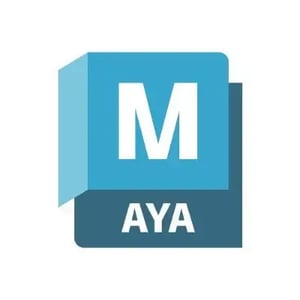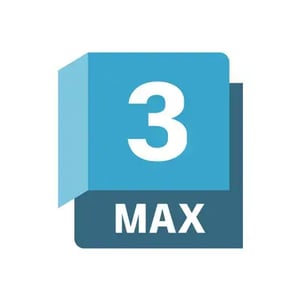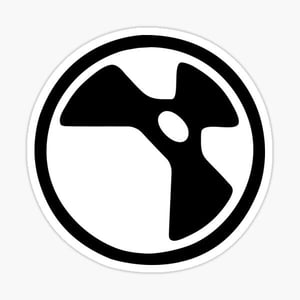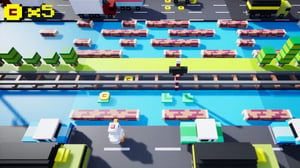
Gameplay Engineer
Student work by Alexander Murdoch
TABLE OF CONTENTS
What does a gameplay engineer do?
Gameplay engineers are code writers who adapt software to the requirements of a video game. They may also be required to create custom software for functions specific to a game.
Player usability is a key focus of the Gameplay Engineer. They oversee User Interface issues, player notifications, gameplay mechanics and game upgrades. Optimizing the playability of the game requires creative solutions to technical issues, testing, software integration, debugging, and an element of design.
The Gameplay Engineer also has to keep an eye on the long-term stability of the product as players will push the game to its limits. Engineers need to know what these limits are and ensure the programming is rigorous enough to withstand the most experienced of players.
Gameplay engineer job description
The role of the Gameplay Engineer is to write code to affect gameplay. They also correct or refine software tools that may not be working effectively for the game. They are technical problem solvers, engineering solutions for all departments. They will also deal with UI (user interface) events, player notifications, calculate math for upgrades and write evaluation code.
Smoothing out clunky gameplay is also the task of the Gameplay Engineer, ensuring interactions within the game are realistic, satisfying and true to the objectives of the game. Game optimization is a key objective in their role, they understand game engines and how to best utilize them for the game. Developers rely on them to bring out the best possible results in gameplay and bring the game to life. The end user experience is always at the forefront of consideration in this role.
Role & responsibilities of a gameplay engineer in the video game industry:
- Liaising with game designers and developers on the requirements and technical difficulties of the game
- Researching and developing into the game engine options and best tools to apply to it
- Creating procedures and production documents
- Working to tight schedules and keeping to budget
- Assisting animators and programmers in software efficiency
- Enhancing the gameplay experience for users
- Conducting testing for gameplay and user experience
- Collaborating with all departments to smooth over technical issues, problem solve and create solutions during the production pipeline process
- Responding to the technical needs of all departments
- Working in teams towards common goals
- Providing ongoing tech support after the game has been launched, working on upgrades to the game

How much does a gameplay engineer make?
Gameplay engineers will earn the same as game programmers. The average salary of a gameplay engineer is between USD $60,000 to USD $104,000. *Source: Glassdoor
To learn more about this field, visit: The Game Development Process: How Video Games are Made
Skills required to become a gameplay engineer
Gameplay engineers will usually have a background in computer science or specialized career training in game programming.
Video game studios may look for the following skills in gameplay engineers:
- Training in computer science, computer programming or software engineering
- Problem-solving skills
- Knowledge of 2D and 3D animation software
- Ability to code custom software tools
- Familiar with the game production pipeline process
- Passion for video games and experience with gaming
- Interpersonal skills to deal with creative and production teams
- Team player, ability to work independently
- Experience in debugging software and integrating platforms
- Analytical mindset
- Able to keep on schedule and meet deadlines
- Good communication skills
- Expert knowledge of technical and software advancements in the gaming industry
- Knowledge of gaming genres and trends
What software and tools do gameplay engineers use?
Gameplay engineers work with game engines and programming software to drive the game along with Programmer teams. They also work with animation and computer graphics software and write code to ensure the game can be fully realized. Working between platforms is also an engineer’s job, they must ensure that software can ‘talk’ to each other and operate harmoniously with the game engine.
Gameplay engineers may need knowledge of a combination of the following software and programming languages:
- C
- C++
- Java

Maya is a comprehensive 3D animation software used for creating detailed models, animations, and visual effects. It's popular in film, TV, and game development for its powerful tools.

3ds Max is a professional 3D computer graphics program for making 3D animations, models, games and images. It is developed and produced by Autodesk Media and Entertainment.

Unreal Engine is a 3D computer graphics game engine developed by Epic Games, first showcased in the 1998 first-person shooter video game Unreal

Nuke is a node-based digital compositing and visual effects application first developed by Digital Domain and used for television and film post-production

Unity is a cross-platform game engine developed by Unity Technologies, first announced and released in June 2005 at Apple Worldwide Developers Conference

Adobe After Effects is a digital visual effects, motion graphics, and compositing application developed by Adobe Inc
How to become a gameplay engineer
Here are some sure-fire strategies to help increase your chances of getting a job in game development.
Get the skills
Look at game studio job ads to see the skills they’re hiring for. Then build those skills: download and learn relevant software, watch online tutorials, or enroll in an industry-focused course.
Stay ahead of trends
Seek out online tutorials, webinars, conferences, publications, and other game programming content to remain informed. See our resource section.
Create your own games
A great way to understand the rigors of game dev and showcase your talent and basic grasp of game production for potential recruiters.
Participate in game jams
A team challenge to produce a game in 24–72 hours, with participants taking on various roles. Gain experience, collaborate, and work towards a deadline. Use the final product in your reel.
Engage with communities
Building connections is vital to getting your name and skills recognized, and a chance to interact with industry pros who can offer advice or even jobs.
Intern at a game studio
Not always a viable option, but it can be a great way of gaining hands-on experience while also networking.
Where to find game programming internships:
- 2K
2k.com/en-US/jobs - ACTIVISION
careers.activision.com/students - BANDAI NAMCO
bandainamcoent.com/careers - BLIZZARD
careers.blizzard.com/global/en/internships - EA
ea.com/careers/interns-and-university-graduates - EPIC GAMES
epicgames.com/site/en-US/earlycareers - FAST TRAVEL GAMES careers.fasttravelgames.com/#jobs
- IO INTERACTIVE
ioi.dk/careers - MICROSOFT
careers.microsoft.com/us/en/gamingjobs
- ORBITAL KNIGHT
orbitalknight.com/careers - RIOT GAMES
riotgames.com/en/university-programs - ROBLOX
careers.roblox.com - ROCKSTAR GAMES
rockstargames.com/careers - RESPAWN ENTERTAINMENT
respawn.com/internships - ROVIO
rovio.com/interns - SEGA
recruit.sega.jp/en/internship - SUPERCELL
supercell.com/en/careers - THE FARM 51
thefarm51.com/eng/careers

Ready to Start Your Film & Games Journey?
Download our course guide to see how we can help you on your pathway to your dream career.Tips to break into the game programming industry
Use the networking opportunities available to programmers and game devs to build up your contacts. This can be one of the best ways to get a job. Searching online, you can find many industry meetups and events, which often include guest speakers like professional artists and software creators. The knowledge gained by listening to these types of guest speakers talk about their personal experiences is irreplaceable.
Don't for get to check out our interview with Ubisoft AI programmer Firas Hosn.
Get a QA job
Kick-start your career with a job in Quality Assurance. Expand your gaming knowledge by testing and pushing in-production games to their limits.
Collaborate with peers
Working with your peers is fun, you can learn from each other and tackle bigger projects.
